#51: explode the code
to Caryl Pagel
Dear Caryl,
When you came to Chicago to read in January, I told you I was going to write you an email about Free Clean Fill Dirt, remember? Here it is, and it’s the 51st issue of the Boredom & the Horror & the Glory.
When Bea and I got to Cleveland last month for our visit, I asked her to take some pictures with my phone, and I think I like those pictures better than the ones I took of her and Winter playing like crazy nuts.
I’ve lived in so many places that I feel I know what it would be like to live anywhere in this country. And I know what I want from a place. More even than a nice grocery store, I want to be able to look at people and think, why do you live here? and to not know, to not even have a guess—to feel like there’s something to learn about them and, through them, the place. That’s why the worst people in Cleveland are the ones wearing Cleveland Clinic fleeces at Whole Foods. I have no questions for them. Everyone else, on the other hand…
I hated living in Oberlin more than anywhere I’ve ever lived, by far, because I knew exactly why everyone was there—it was in the name of the town! There was nothing left for me to imagine—it was like the end of the road, in terms of me moving anywhere and imagining.
Once I was sitting looking at the lake on the West Side. I think I was early to therapy, which was in Willoughby, or maybe I was coming back from trying to teach English to the Nepali refugees on Detroit Ave. It was this time of year, and we had weather like we have in Chicago right now—a loose spring day in the middle of winter. Luscious crestless rolling waves, shimmering under the white sky, white sun. And opaque chunks of ice swimming on the surface like, it’s still winter, don’t get too excited. That’s the fullest kind of enjoyment for me, when you even get something to be annoyed at.
Glaciers pressed against the sandstone cliffs
They made all this
How the grand lake mouths the land
The lake spells no thing
Another woman was sitting there, too. After awhile, she said what a beautiful day it was. “But it’s sad, too,” she said.
“Yeah,” I said.
“It’s not supposed to be this warm this time of year.”
“Yeah, you’re right,” I said.
“And look at the chemtrails.” She said a lot of other stuff after that. I just agreed with her and hoped I’d get to leave soon. She probably ended up storming the capitol. When I taught at Heidelberg, I used a book all the time called How to Say It for Women, about sloughing off the “grammar of weakness,” for example, “I feel like…,” or “I think,” or “Okay so…,” or “I was going to say…” (I’ve written about this book before.) The more I said neutral yet assertive things, the better I got at it. “My promotion would benefit the entire department.” It was a lot of work, work against the tide of my humiliated self, but it freed up so much time and self-respect. I eventually I got tired of doing all that hard work, though, and I’ve gone back to responding to everything with, yeah yeah yeah oh yes you’re absolutely right. I responded like that to the woman watching the chemtrails at the beach, but that was a long time ago—I didn’t know about the book yet. Now I know about the book, but I have put aside its lessons. The fact of the matter is, it’s hard to say it for women.
Caryl, there’s a place on earth called Severance Center. How did you think to make that a poem? How did you know? Moving from Cleveland to Oberlin was a huge mess like moving always is. I was so stressed out. I took all my shredding to the Severance Center Office Depot. That Office Depot must be closed by now.
Hot Sauce Williams is closing
Wicked Taco is closing
La Cav du Vin is closing
Tav Co is closed
Now it’s open again in Brennan’s
I think of this poem when I walk or drive or ride my bike around anywhere worth living, anywhere worth imagining. I love how you wrote “closing,” not “closed”—and even Tav Co that closed is open again in Brennan’s, “closed” didn’t take. I feel a jagged rusty edge of excited discomfort at a closing—an energy like I want to push it forward, to make it end already, end this suspended state of closing, closing soon, not closed yet. That jagged rusty edge is a place I want to be.
The parking lot in Severance Center was always comprehensively empty. It seemed to have lots of corners and entrances and exits, all empty. I parked and brought to Office Depot my to-be-shredded papers in a flowered bag that I still have. There were two guys behind the counter and one of them put the papers on a scale and said to me, “Okay, one-forty-seven.”
I was like, “ONE HUNDRED AND FORTY SEVEN DOLLARS?”
Both guys and Brian, who had come with me, burst out laughing. They all said, simultaneously, “a dollar and forty-seven cents.” I started laughing, too.
But don’t wreck this room (yet)
with prediction Just
let’s stare without purpose at the pattern
for a minute
Let’s stare without purpose at the pattern
for a minute
Let’s stare without purpose at the pattern
for a minute
Let’s stare without purpose at the pattern
Caryl, you’re always making room, where it seems like there’s both too much room already and not enough, in a place like Cleveland, or in a place like poetry. You have a tone that’s like a whispered secret and a stentorian announcement, both at once. To me a necessary sound. I see your writers in you, Russell Atkins in your arounding, Lorine Neidecker in the secrets you tell with rhymes.
Is that part
of the stem—the
one that bends—
around the pole—stood
there now decades
ago—the stem that
mended obstruction by
humbly arounding—shooting through
it—is it
then—that stem—evidence—
of memory or
an antenna?
When Brian and I lived on Overlook, I walked into our apartment one day and stood at the front door, facing the small kitchen. I said, “do you think we should have a baby?” Brian said a tossed-off “sure,” like when I asked if he wanted to get married. When I said that, I started to become different. I started to try to balance two things that are unbalanced themselves, these two ideas I had, writing and a baby. Not balance them, that’s not the word at all, and, actually, writing and having a baby, those aren’t the right words, either. How to say it for women?
a wild
coyote walked kingly
down the street at
dawn No Wait
wild is wrong You
didn’t see it
There can’t be any longer wild Wild
is the one that
lives inside watching
from the window what
is wilder still than him
In college I took a Virginia Woolf class for English majors only. The class was all girls; I never would have called us women. I was obsessed with reading and also utterly resistant to doing the assigned work for the class. I read the parts of the books we weren’t assigned and skipped the parts we were. On my slapdash final paper, the professor wrote something about how well I could have done if I had done the work. But I wanted to be outside with Woolf, in these freaky moments of being, outside the golden canonicity with which she had been conferred. To write a good term paper would have been a betrayal of Woolf as I saw her. In Moments of Being, Woolf pulls her reading, her literary criticism, into the story of her mind she’s telling. Seeing her do that gave me a feeling of possibility that felt like learning how to read, which I remember working hard to do in school. I wasn’t an early reader like you and Winter. The workbook was called Explode the Code.
all patterns are
perfect—perfect as a baby learning one
sound (da da
da da da) before the whole word
(world) comes stumbling
out
When I read Moments of Being, I saw what a book could be. I guess it could be called something like combining genres, with literary criticism and memoir together, but what Woolf was doing was more than that to me. When I read it, something that had been flat became multidimensional. I looked at the book then I looked at the world. A book is wider than the sky—
Frank O’Hara wrote “There should
be / so much
more, not of orange, of / words, of
how terrible orange
is / and life” He’s right
Caryl, you do that thing that I saw Woolf doing. But you do it as the poet-publisher you are. You fixed O’Hara’s sloppy and lovable line breaks while also admiring them, showing to us this thing, giving it to us so that we can love it, too. You always do that.
You are trying to
think but that
sound—that sound not
strong—not a
train or a shot
Not a wail
or a clock That
pitch There is
something in the way
of the thought
It’s easy to talk about the beauty and the ugliness of Cleveland. Poets are always doing things like that. You do the other thing, you write the boredom and the horror and the glory. That’s why this one is for you.
Love,
Lucy
*******all the poems I quoted are from Free Clean Fill Dirt, by Caryl Pagel, which you can buy here.*******


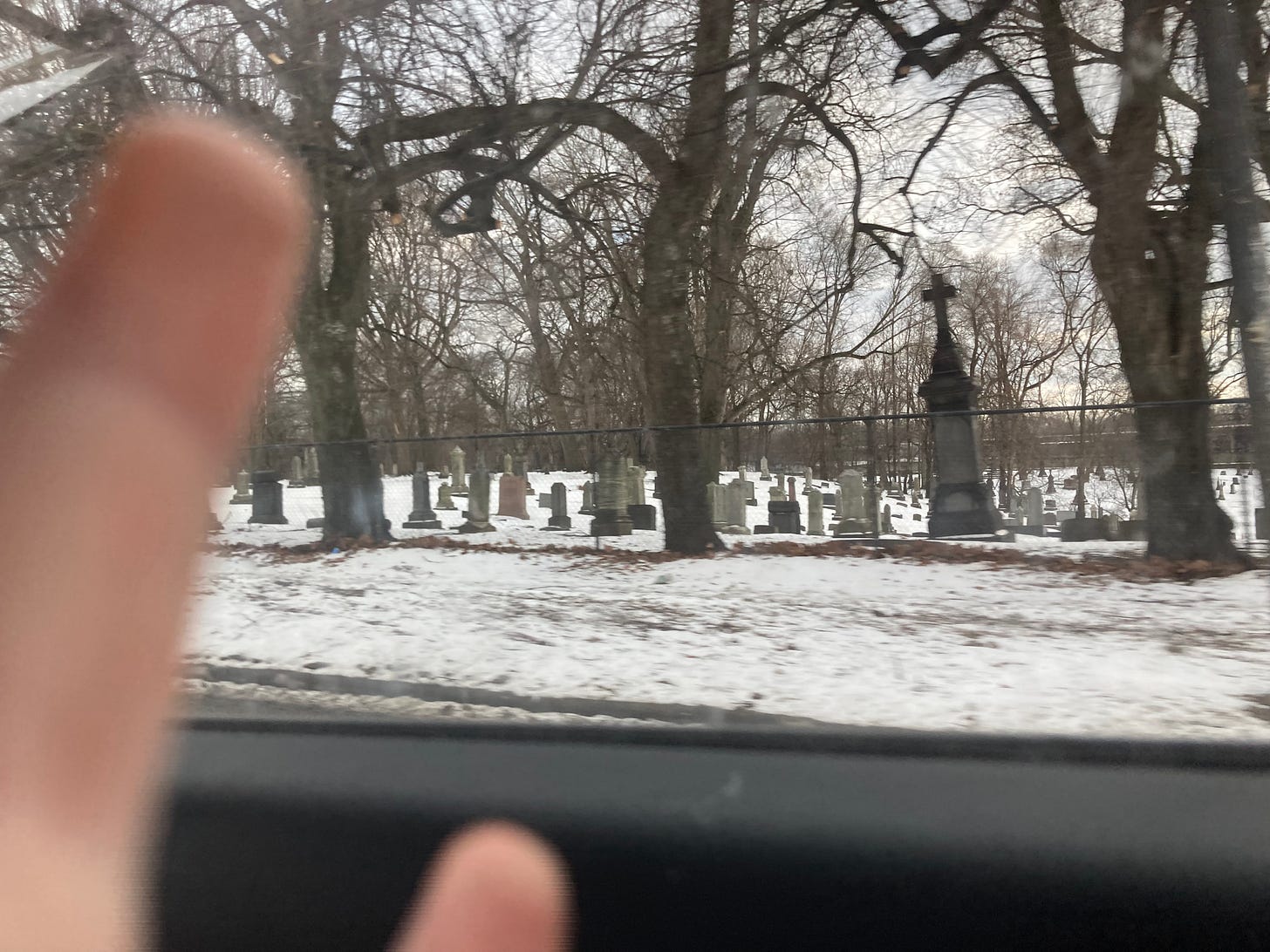
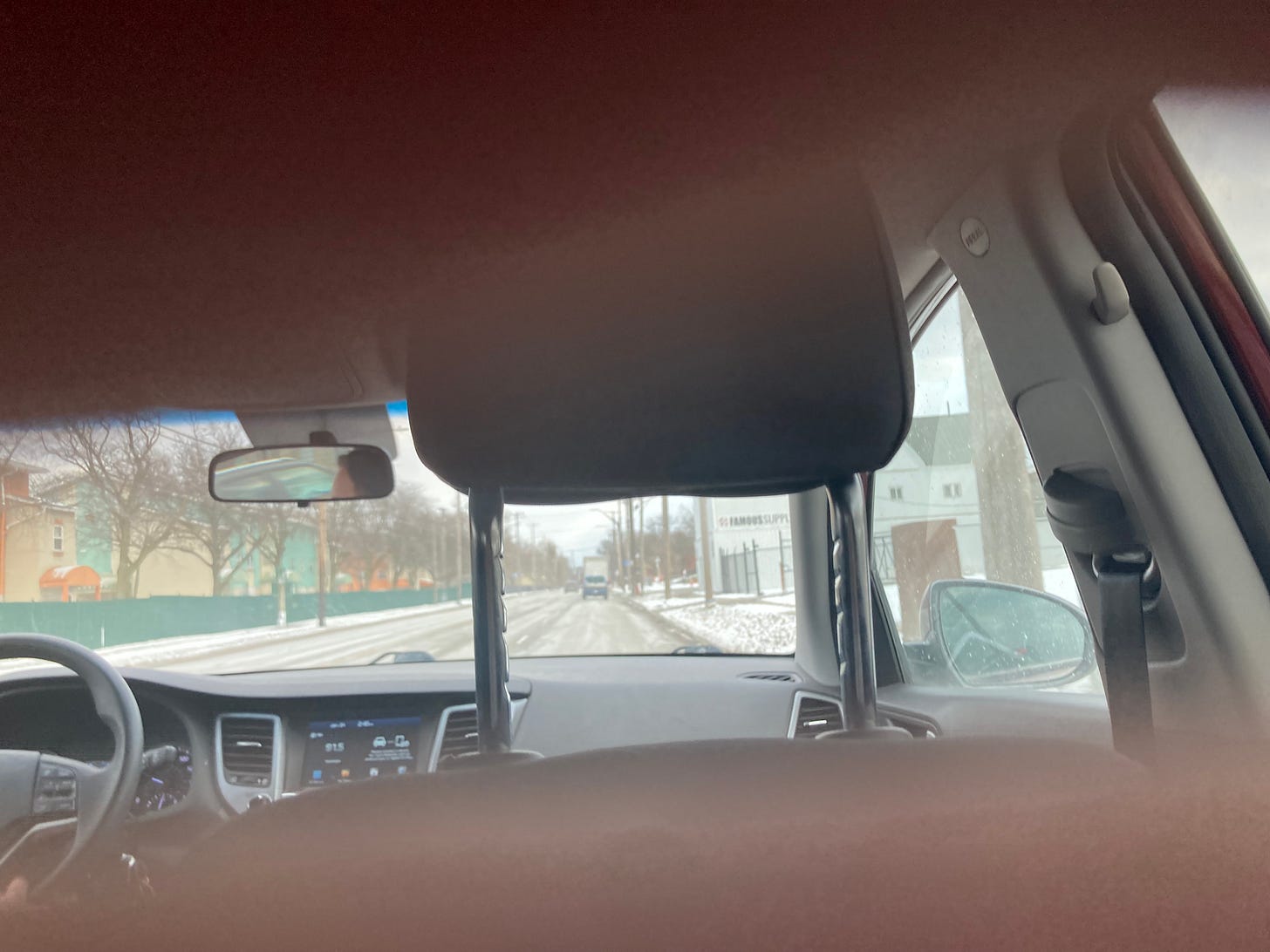
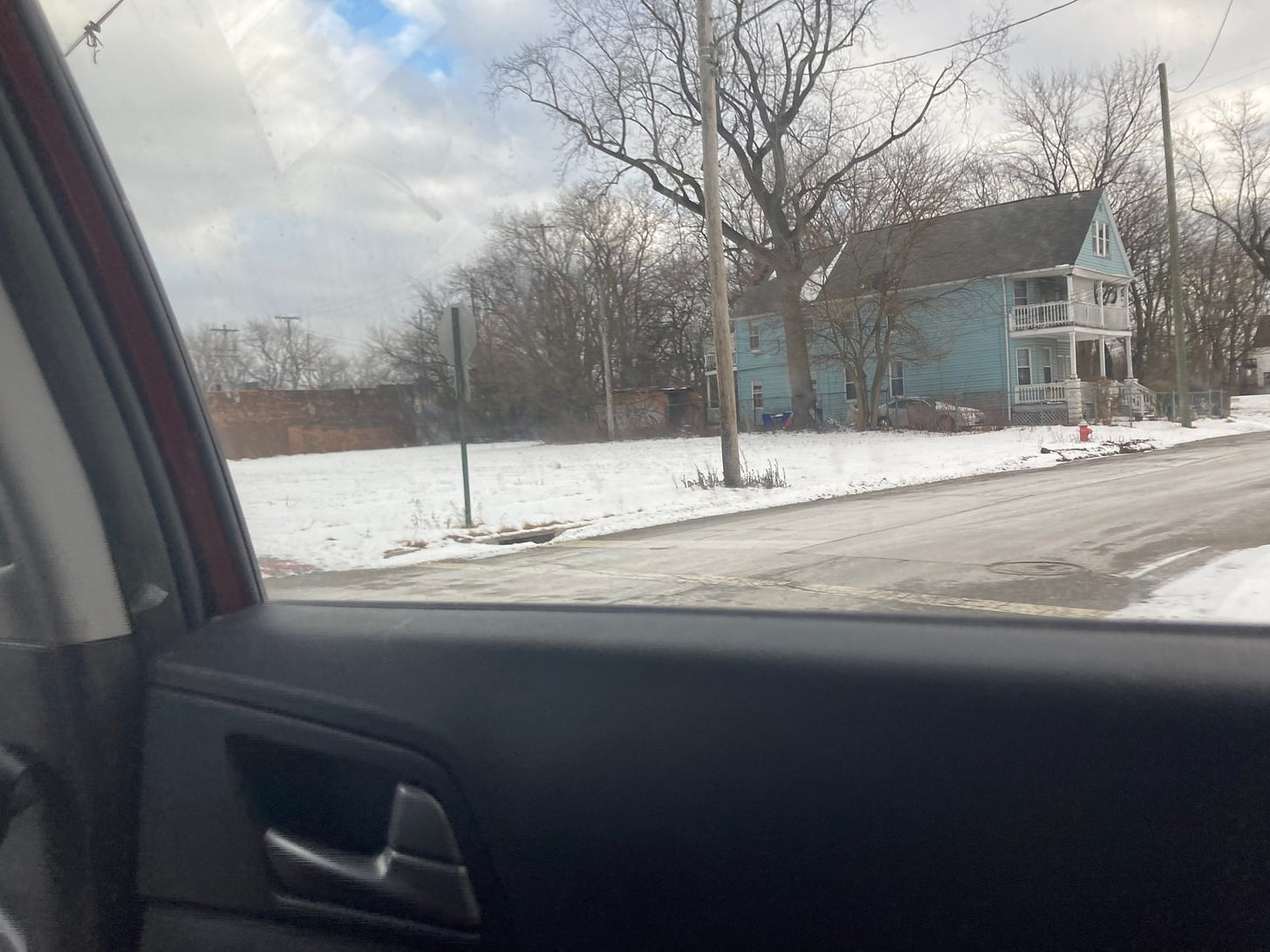
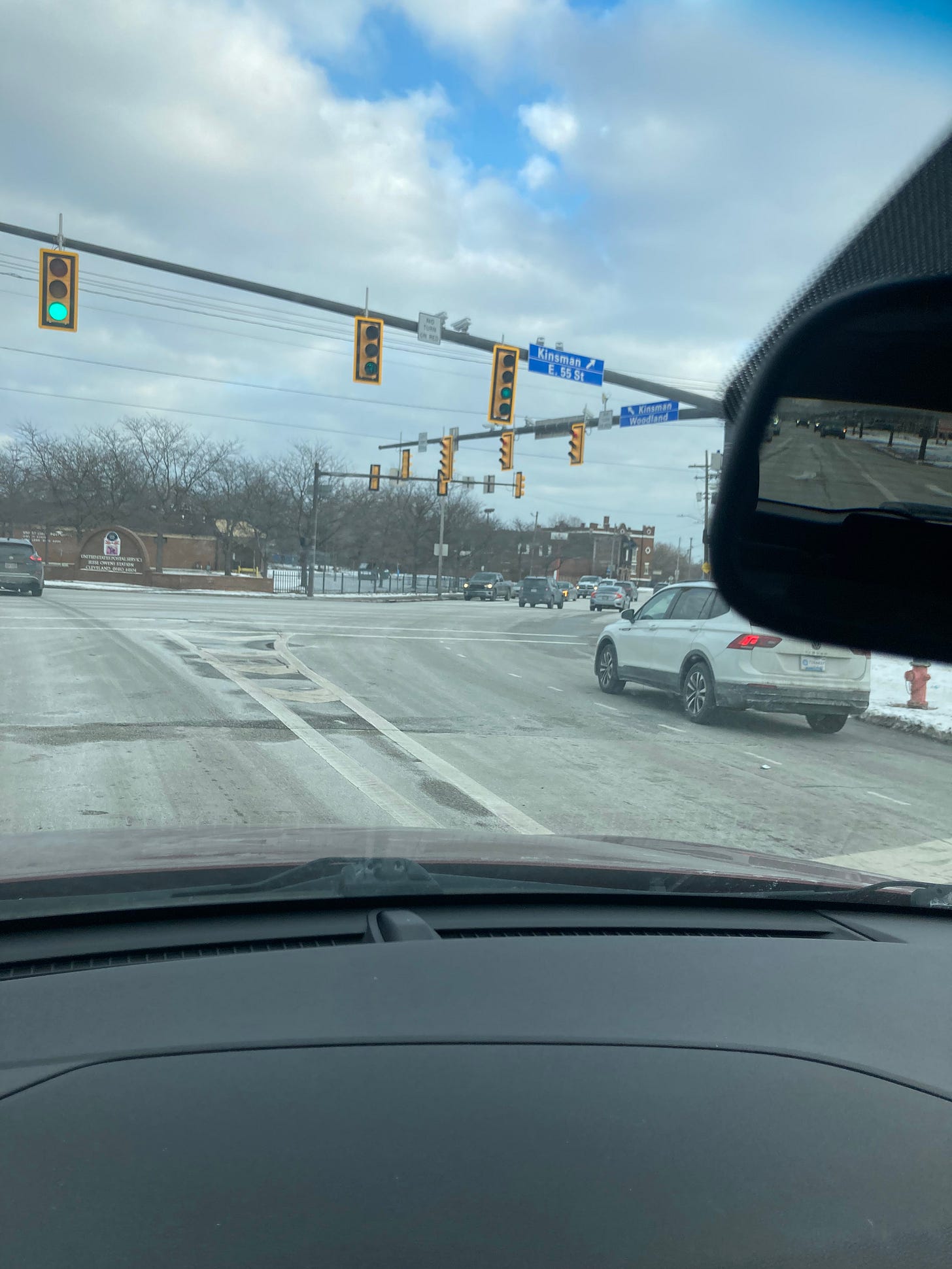
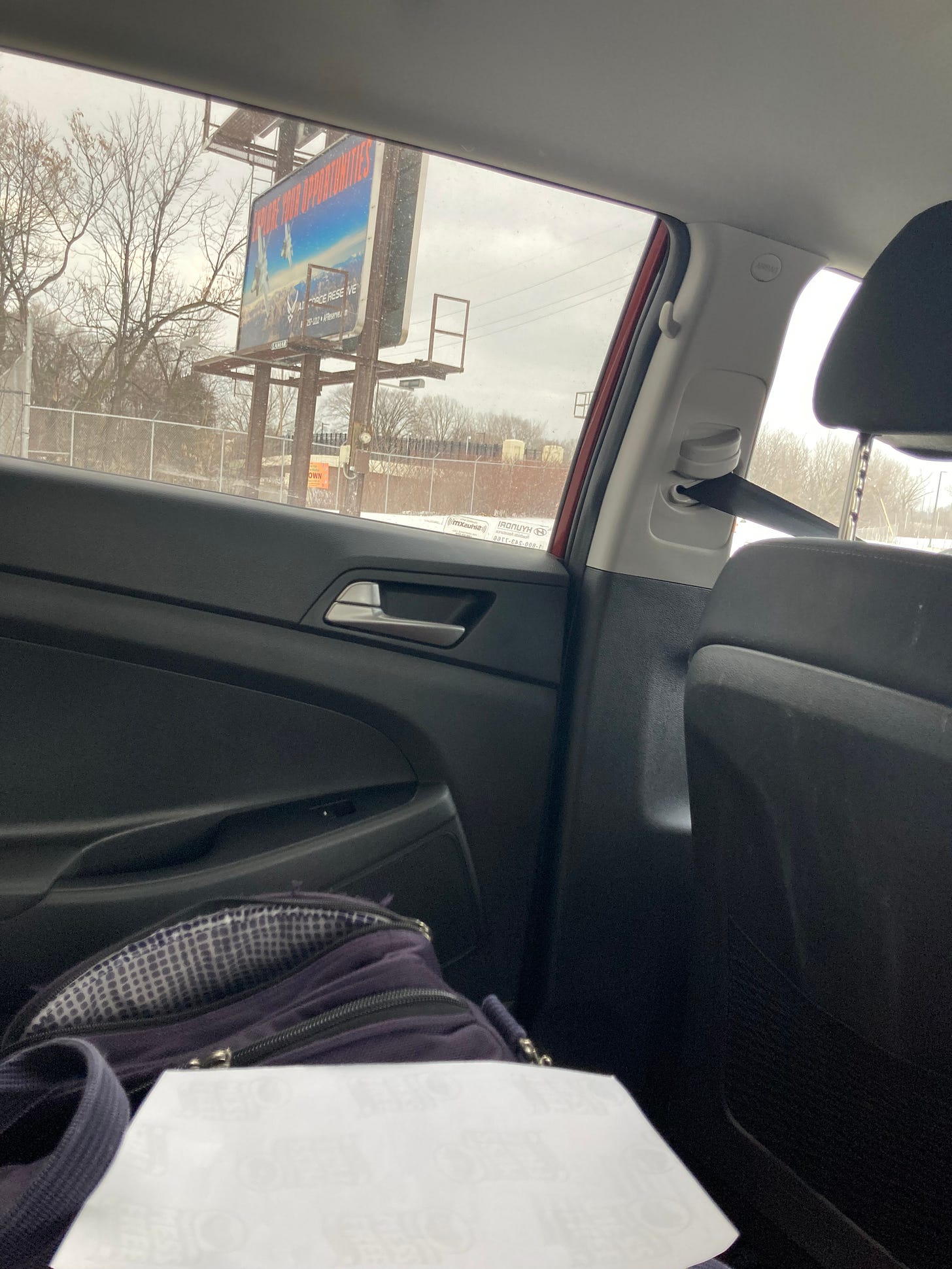
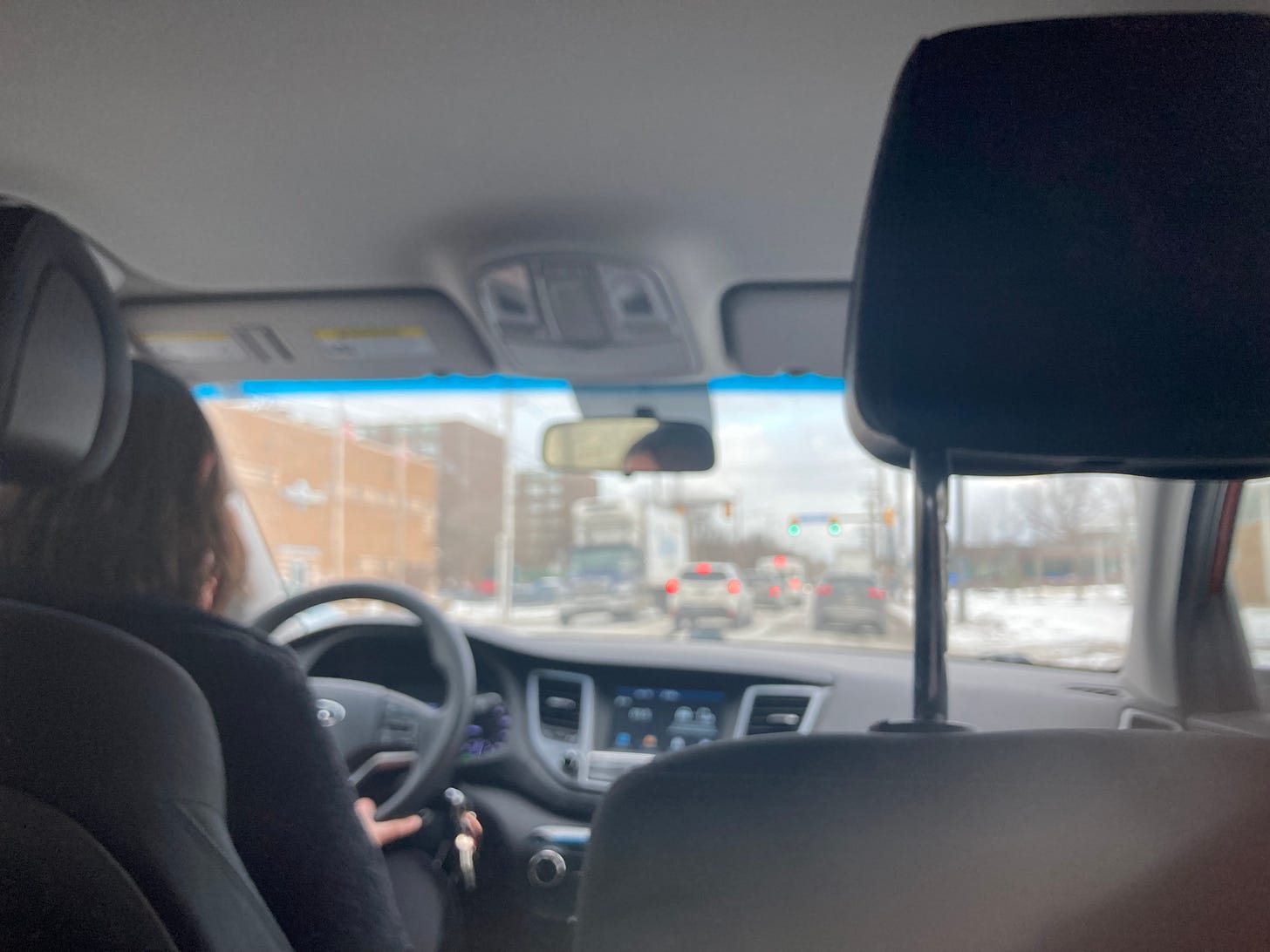
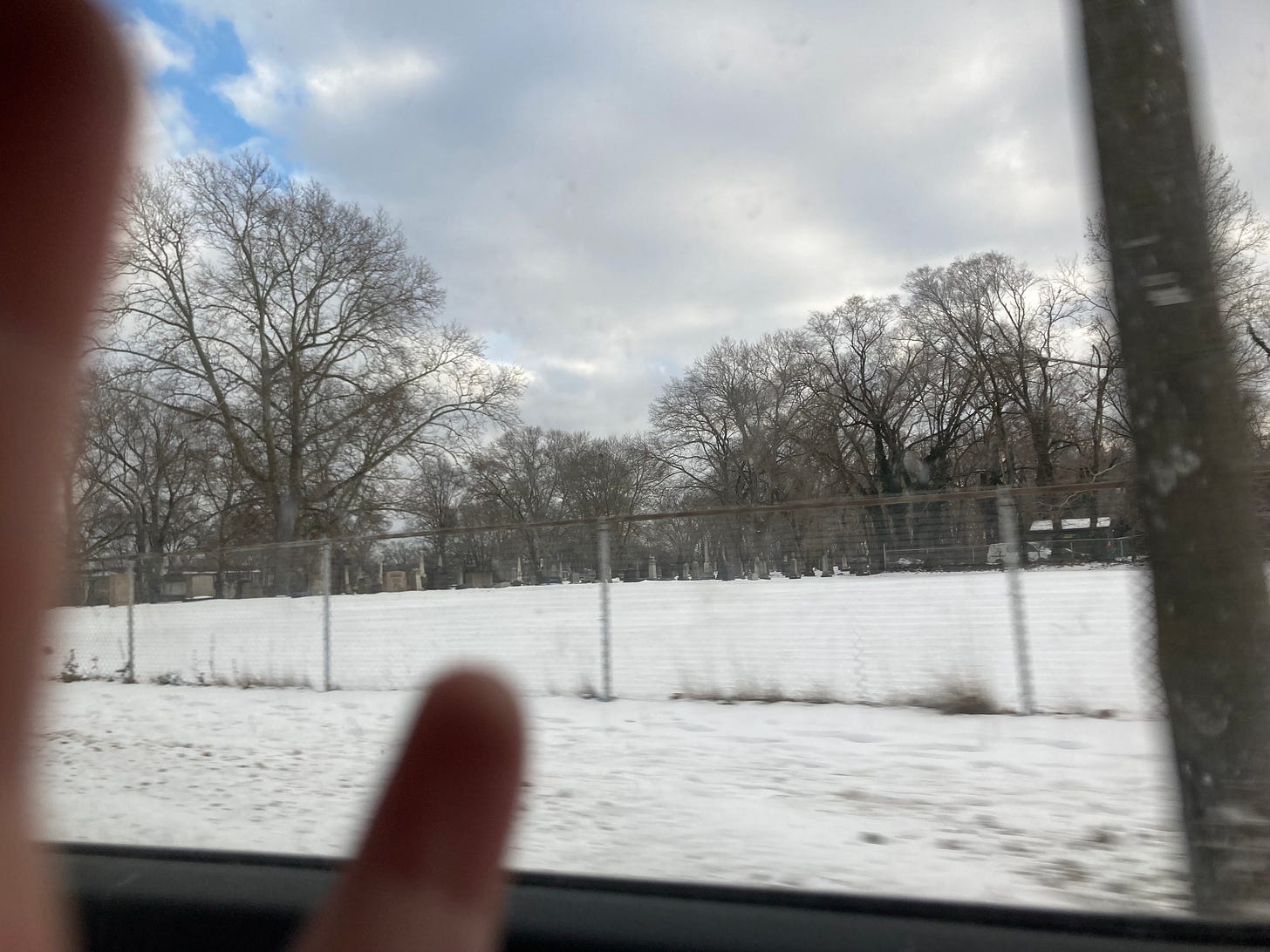
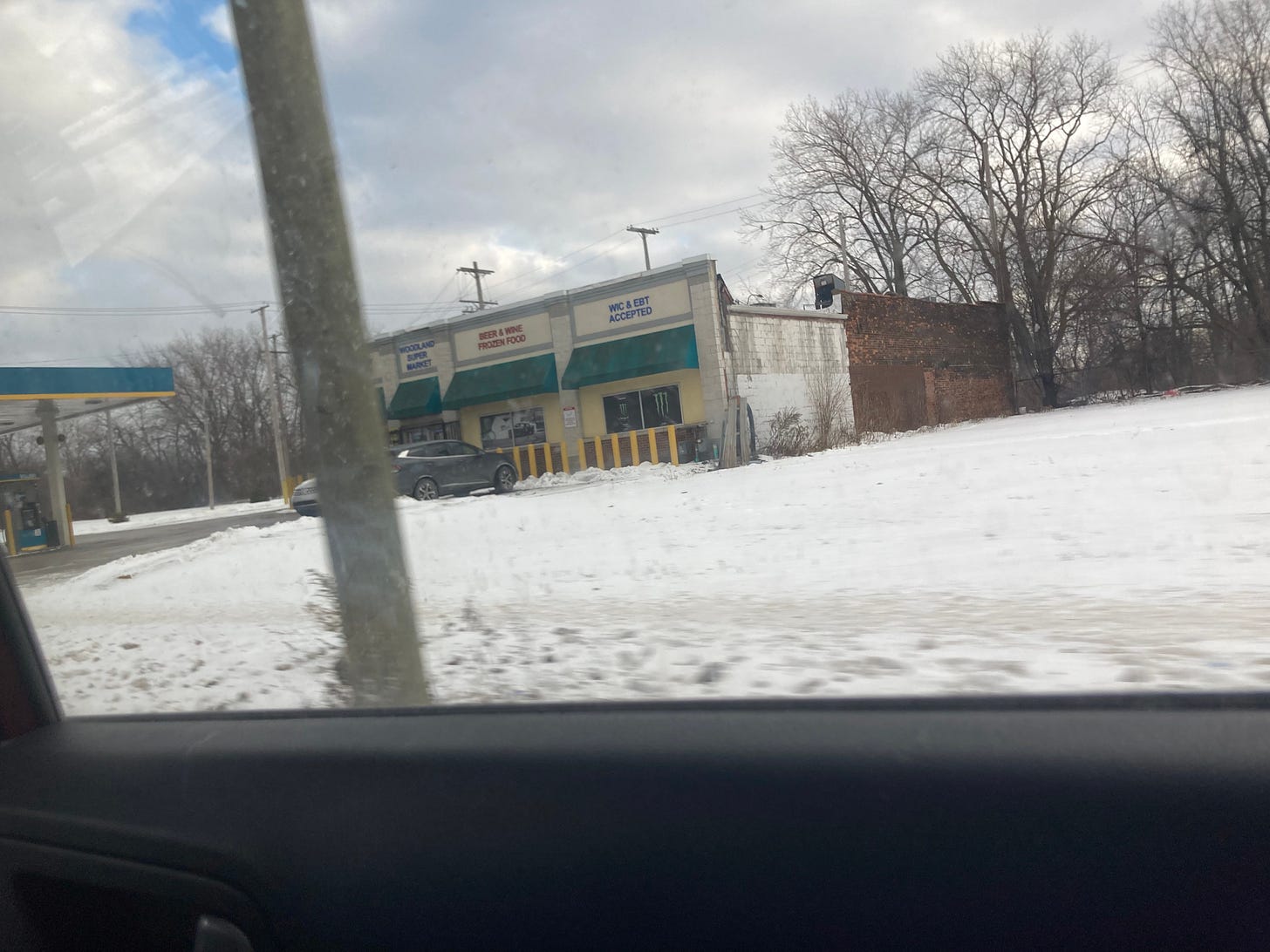
Wow. Also, now I can explain what I’m doing in Salt Lake City. Thank you.
made me want to move to Cleveland